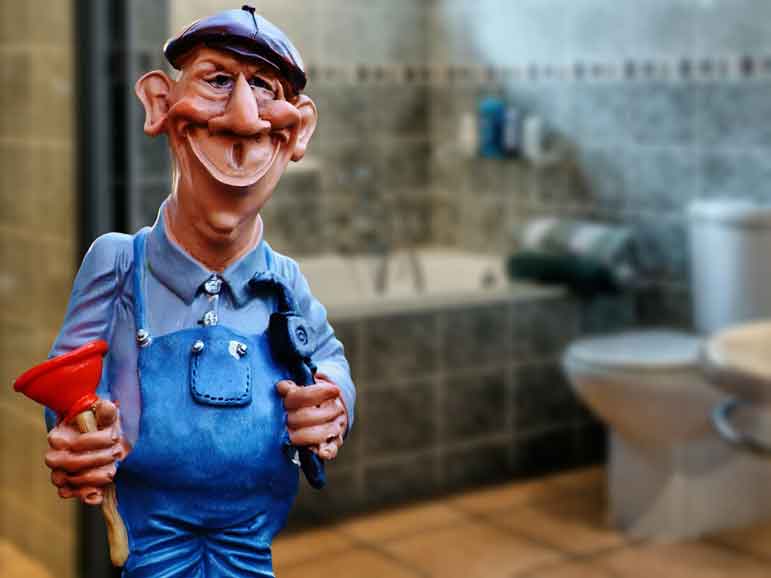
If a plumber is hired to fix a leaky bathtub faucet but is unable to completely stop the leak without very significant expense to the homeowner, does he still have the right to be paid for his time and effort in trying? That was the interesting question that "Art" emailed.
"I was hired by an elderly couple to repair a leaky bathtub faucet in their 60-year-old house. The couple's handyman, who referred them, explained this was not going to be an easy job. He said the homeowners are aware that you might not be able to fix the leak without them spending a great deal of money.
"There are many reasons why a faucet will leak, but the most difficult to repair is a corroded valve seat. Water sediments create corrosion, which leads to leakage around the spout area. Often, over-tightening the faucet when turning it off damages the washer that protects the valve. A bad washer will let in enough water to cut a channel through the valve seat, and you wind up with a leak.
"So, I needed to replace the valve seat, but there was so much corrosion, and evidence that some other plumber tried to remove it and stripped the threads. No matter what I tried, it would not budge.
"I made three trips to the home, even purchased a special tool, without success. The only other remedy would have been to tear into the wall, damaging tiles, and re-plumbing the tub and shower. That would have been very, very costly.
"However, I succeeded in reducing the leak by at least 90% which will result in saving water. Am I entitled to some compensation for the time and effort that I spent which, while not 100% effective, did result in a significant benefit to the homeowner?
"I believe they will agree to pay me something, but how much is the question?"
A Law School Contracts Professor Gives His Opinion
I ran Art's question by a friend of this column,
"There are two ways of looking at this. First, a contract with a plumber to fix something is a service contract — like one would have with a lawyer or a doctor — and results are not necessarily guaranteed.
"It could be, however, that the plumber agreed to stop the leak, meaning that he was essentially guaranteeing he would fix it before being paid. Whatever he spends on tools is part of his business expenses, and the homeowners wouldn't be responsible for that unless they agreed to pay.
"Some repair people charge a fee just to come out and look at a problem and then a further price is negotiated to fix it. Under those circumstances, I wouldn't expect to pay anything more than the estimate, and I wouldn't pay any more than that unless the problem was fixed.
"But in this situation. where going in everyone was aware of major problems and where the leak isn't fixed, I think the plumber is entitled to a reasonable amount for coming out and trying to fix it."
Did the Plumber Substantially Perform His Agreement?
It seemed clear that Art had not guaranteed fixing the leak, but in good faith, agreed to attempt to. Had he said, "If I can't fix it, you don't owe me a cent,"
"But what we have is something different, what the law calls substantial performance."
- Art made a good faith attempt at performance.
- Given that completely stopping the leak wasn't practical or cost effective, he did not materially breach his agreement. He substantially performed, greatly reducing the leak.
Let's Not Forget Basic Morality
"The law does not like to see people taken advantage of," Hull points out. "If the homeowners realize the plumber did the best that he could under the circumstances, basic morality should lead them to compensate him in some way for the reasonable value of his services.
"This might be what he normally charges per hour — whether or not he is legally entitled to be paid. From a practical perspective, treating Art decently will assure that the next time they need a plumber, he will go the extra mile to help them, and maybe, cut them a discount. Or perhaps give a good deal to people referred by the homeowners.
"We must never forget to ask, ‘What is the right thing, the fair thing to do?'" Hull underscores.


 Contact The Editor
Contact The Editor
 Articles By This Author
Articles By This Author